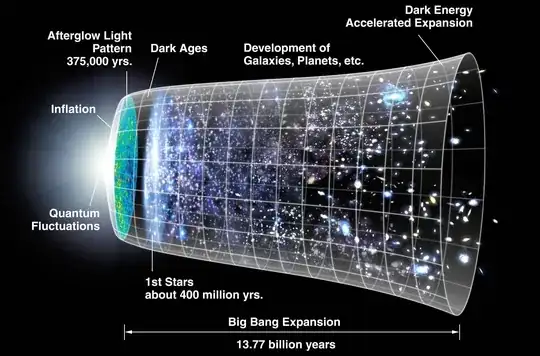I've read, and I hope to keep reading, so please send me all your links, and I apologize in advance if this is a duplicate, or non-mainstream physics question as the speed of light is widely accepted as a constant. While it's only a slight variation of numerous questions on this site - several of those listed below - I do believe it's unique. Or the specific answer is hidden, at least for a layman (that's me).
Why do we assume the speed of light is constant outside our solar system and/or galaxy and/or some other [relatively] local construct?
Or another way I might try to phrase this - why doesn't gravity affect light? I know it's not supposed to have mass, so it wouldn't - but it also seems like the general consensus is that it does have mass, we just can't measure it (like electrons), and it's considered so negligible in our equations we can ignore it.
To bring one example of my question not being answered in the below sources: While you read the detailed and well-explained answer here, isn't every value used in the explanation derived from the assumption that the speed of light is constant throughout the universe? Couldn't every one of those calculations be performed and provide "satisfactory" answers even if light was varying based on some level? Why not?
Going to the derived from Maxwell's equation's response I've also seen a lot - Why wouldn't changes in gravity also affect these? Am I taking the statement "It's all relative" too literally here?
Further, I just thought back to the fact light can't escape a black hole, which means it is affected by gravity, right? So why is that effect ignored in all our modern equations? Is it really nothing/negligible when measuring the distance of something like another galaxy (or the particle horizon for that matter)?
From the reading I've done I'm guessing I have some fundamental misunderstanding... seems to always be the answer to these questions. I'm thinking maybe something regarding the way I'm thinking about time, or I'm somehow excluding it's relativity? Really don't know (obviously) But if someone can help me out, I'd appreciate learning more about this.
EDIT: I appreciate all the answers, I chose my accepted answer based on what helped me wrap my mind around this most easily. I'm also thinking of re-framing this as a new, more focused, question. I spent too long writing this and it got away from me/began to become multiple questions in one.
Previously read:
https://www.sciencenews.org/article/speed-light-not-so-constant-after-all http://www.desy.de/user/projects/Physics/Relativity/SpeedOfLight/speed_of_light.html http://www.desy.de/user/projects/Physics/ParticleAndNuclear/constants.html http://www.desy.de/user/projects/Physics/ParticleAndNuclear/photon_mass.html https://www.livescience.com/29111-speed-of-light-not-constant.html https://en.wikipedia.org/wiki/List_of_electromagnetism_equations
Similar questions:
Why and how is the speed of light in vacuum constant, i.e., independent of reference frame?
Purported non-constant speed of light
Why does speed of light have to be constant?
Is the speed of light in a vacuum constant?
Why is the speed of light in vacuum constant?
How the speed of light is constant with the particle horizon moving toward us?
